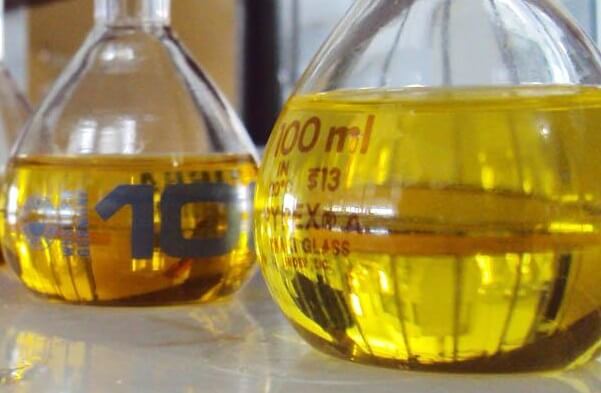The Fuel Sample You Get Is Your Reality
Earlier this year, we conducted a couple of webinars on the crucial elements of condition monitoring and condition sampling for stored fuels. To...
3 min read
Erik Bjornstad : Jul 23 2019

We're continuing our blog series on testing for microbes in stored fuel and the issues/considerations that affect what those results may mean and what you should do about them.
 So you're testing your stored fuel to make sure there are no microbial problems, that your microbial levels are "normal" (however you've defined that). And you get a microbe count, but the next day you go back to the same tank and do the same test and......your result is completely different. How can that be? What exactly changed and why are they so different?
So you're testing your stored fuel to make sure there are no microbial problems, that your microbial levels are "normal" (however you've defined that). And you get a microbe count, but the next day you go back to the same tank and do the same test and......your result is completely different. How can that be? What exactly changed and why are they so different?
The answers to your questions borne of frustration come out of some key considerations that you have to recognize about fuel testing
In any kind of testing, there are inherent characteristics of the test itself that can influence the accuracy of the results. What do we mean by accuracy? In one sense, it's how close your test result is to whatever the actual real result should be. You would think this is an important consideration for any kind of testing, and you'd be right. You need to have confidence that the information you're getting from any condition monitoring you're doing is leading you in the right direction.
In considering the potential accuracy of what we're doing with microbial testing of stored fuel, we have to recognize that when running fuel and fuel system microbiology tests, there are four big factor that contribute to the variability (or lack therefore) of your test results.
As we've discussed in previous posts, your microbial test results will only be as diagnostic that your sample allows them to be. The microbial load in two different samples collected from the same tank but only inches part, can be dramaticallty different. You can mitigate this to an extent by testing multiple samples collected at the same time, but there's always going to be that inherent difference. There's nothing we can do about it, we just have to keep it in mind.
Remember that once you have your sample, you're not done. You don't actually test the entire sample you pulled from your storage tank. Instead, you're going to take a portion of that sample, and test that. That portion is referred to as the Specimen.
If you have a sample that has more than one phase, you can get different microbial counts even within that sample itself. So it's best to test a specimen from each phase that the sample has. For a sample that ends up with a fuel phase on top, a rag layer interface, a free-water phase, and some sediment on the bottom, the best practice would be to take a specimen from each of the four phases, and test all four.
However, not everyone is willing or able to do that. If you really are limited to just one test, the best place to take the specimen would be from the water phase just below the interface.
Believe it or not, the accuracy of your results can depend on who's conducting the test. No two people run a test identically. This is well known within the testing world; so much so that ASTM tests have a reproducibility range built into their test procedures. This seeks to establish an expectation of how wide the range of results should be for two technicians running the same test on identical samples. Obviously, you want this range to be as small as possible but it's never going to be zero. So you have to account for that.
The last factor that has to be considered is how repeatable the test is. Repeatability differs from reproducibility in that it's not about whether two people can get the same results on the same sample, but whether one person could repeat the same test on the same sample and get the same result. You would think that would be important, and you'd be right.
What is it about the kind of samples and the kind of tests on stored fuel that might cause these factors to come into play? For the first two - the Sample and the Specimen - are caused by the non-uniform distribution of microbes out in the real world. There's nothing you can do about that, you just have to acknowledge its existence.
The second two factors, though, these come down to the test method itself. What does it require you to do? How well does it measure or express what it's supposed to be measuring? ATP Testing By Filtration has the advantage of having a high level of precision, on par with laboratory culture tests. But when you factor in that ATP By Filtration detects a much greater percentage of the microbes in the sample (around 80%), the ATP By Filtration (ASTM D7687) is much more accurate than other methods.


Earlier this year, we conducted a couple of webinars on the crucial elements of condition monitoring and condition sampling for stored fuels. To...

In a recent post, we were talking about considerations that come from asking the question of ‘what’s the real significance of these microbial test...

Up to this point at the Bell blog, we’ve written no small share of analysis of the available kinds of tests for measuring or detecting microbial...